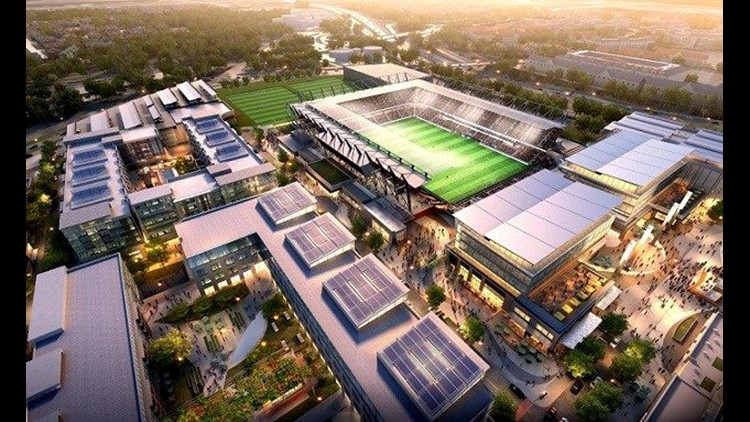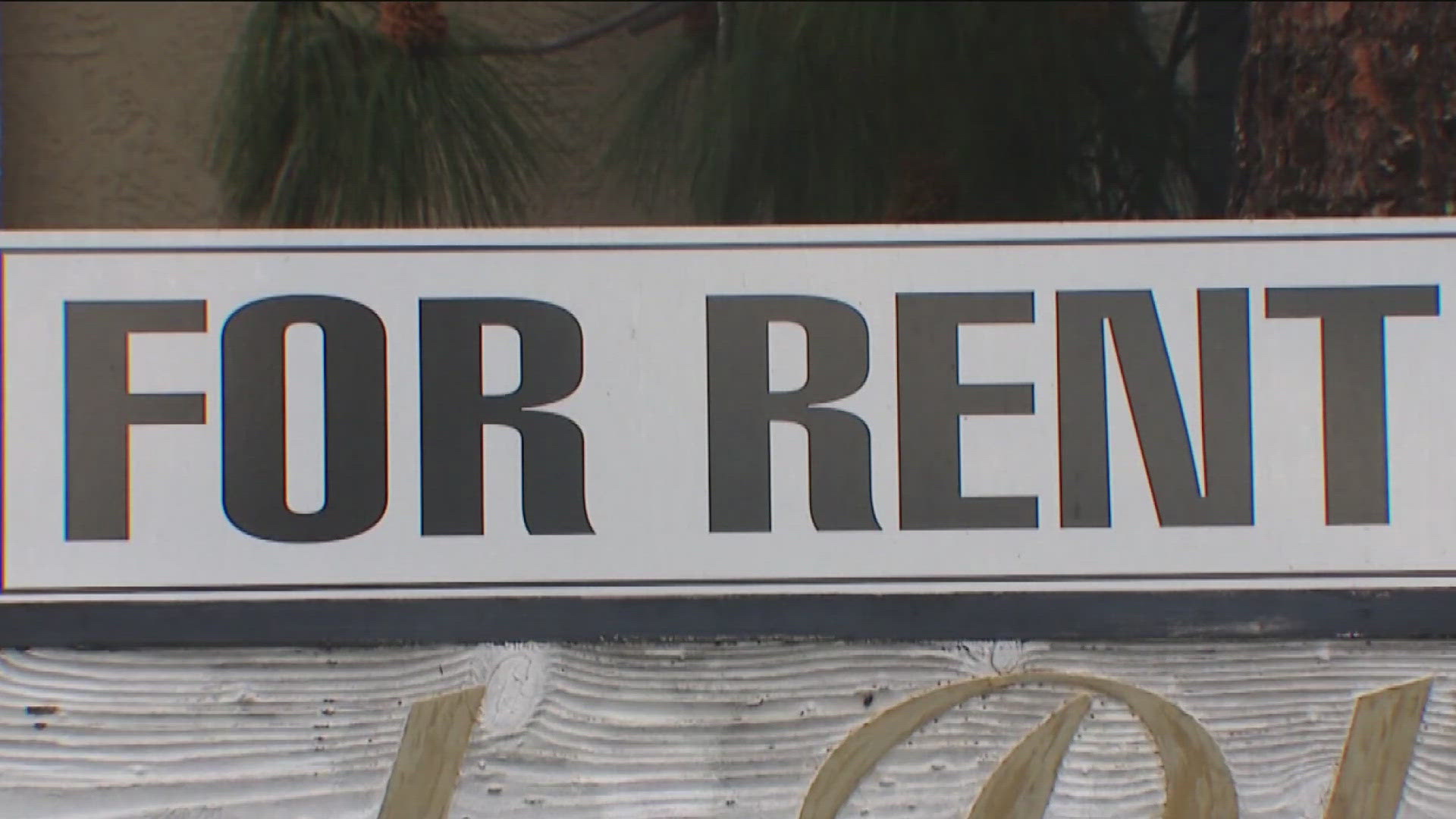SAN DIEGO (CNS) - Mayor Kevin Faulconer met Tuesday with representatives of San Diego State University to hear their concerns about the proposed "Soccer City" project that would replace Qualcomm Stadium.
The investor group behind the proposal is circulating petitions in support of its plan, which would create a hybrid soccer-college football stadium along with commercial development, housing and a park by the San Diego River. While the mayor has been generally supportive of their efforts, he's stopped short of endorsing the project.
"Mayor Faulconer appreciated meeting with San Diego State University to hear their thoughts on Mission Valley," said Jen Lebron, Faulconer's press secretary, of the hour-long get-together. "As a proud Aztec, the mayor plans to keep an open dialogue with SDSU as well as meet with other stakeholders as he continues to review the initiative.'
SDSU officials have long eyed the 166-acre property in Mission Valley for campus expansion, and have an opportunity now that the Chargers have departed for Los Angeles. However, they've expressed concerns about parts of the proposal, including whether the planned stadium could be expanded in the future.
"San Diego State University appreciates Mayor Faulconer's willingness to meet regarding our vision for the Qualcomm site," school spokeswoman Gina Jacobs said.
"We are eager to continue discussions as they relate to stadium size and land lease or purchase for overall university expansion, among other topics," Jacobs said. "We also look forward to seeing how we can best bring our resources to bear as partners in development of the Qualcomm site."
Faulconer has said it's important to keep the two sides talking so they can work out an agreement, and that it's important to find a permanent home for the Aztecs football program.
SDSU officials presented the mayor with seven points they said were "imperative" to the future success of SDSU and San Diego, "regardless of any current plans or initiatives for the Mission Valley site."
They were:
-- a 12-acre multi-use stadium site free and clear of any development constraints for design and construction, that SDSU would purchase or lease for 99 years;
-- a partner at the Qualcomm site willing to move forward with design and construction of a multi-use stadium within 90 days of the land transfer, or SDSU would move forward with design and construction on its own;
-- a competitive process to choose the architect of record for the stadium project that conforms with California State University regulations, and leads to the design of an up to 35,000 seat multi-use stadium that allows for expansion to 40,000 seats;
-- a unilateral ability to expand the stadium to 40,000 seats at any point in the future;
-- an appropriate amount of parking that will be available in time for the first stadium event, with all spaces dedicated to stadium events when a "full bowl" event is scheduled;
-- a grant of all rights from the city to SDSU for Aztecs and other collegiate sporting events, or the appropriate collegiate event host; and
-- 35 acres to be purchased or leased by SDSU, in addition to the stadium property, for future university expansion.
Former City Manager Jack McGrory told the San Diego Union-Tribune that the university's needs could be met via the Soccer City plan.
If the Soccer City backers -- who include investment manager Mike Stone, former Qualcomm President Steve Altman and Peter Seidler, part of the Padres' ownership group -- collect enough valid signatures, the City Council will have to either approve the project or put it before voters in next year's elections.
The group has also applied to Major League Soccer for an expansion franchise.



